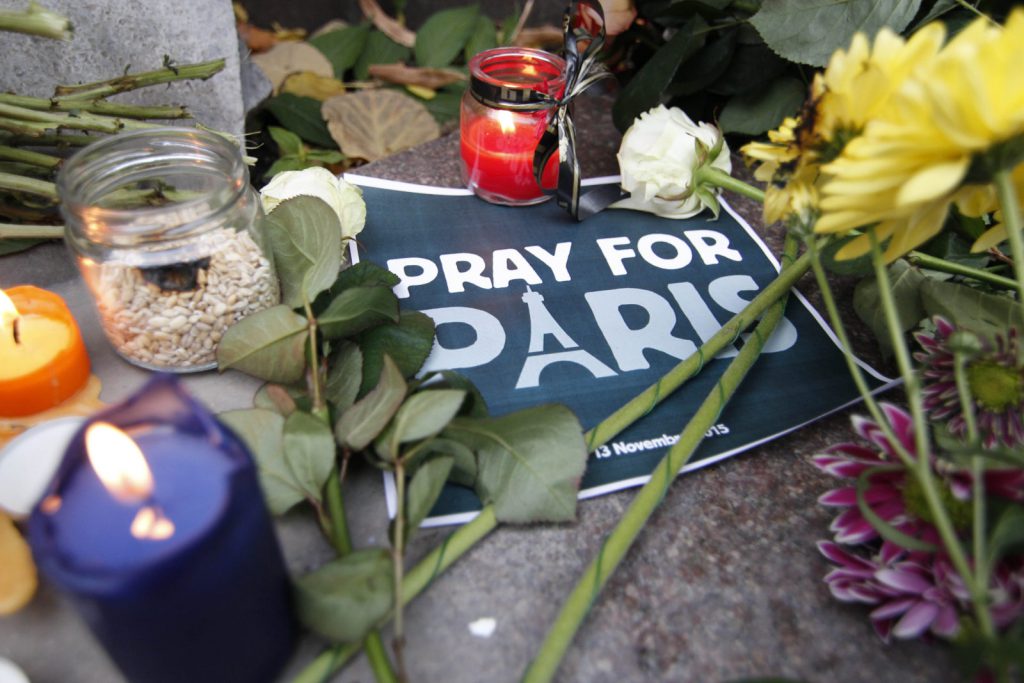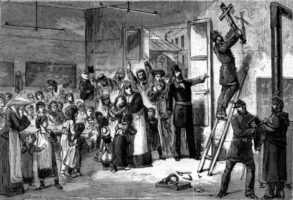
Published November 16, 2015
On Friday night, my home city of Paris, France, suffered the worst terrorist attack in its history. Our family had gone to bed early that night, and so realization dawned slowly, mostly as I saw a deluge of texts, emails, and tweets from American friends asking if I was okay. I groggily pulled up Twitter, pulled up my newsfeeds, and the news gradually entered my consciousness, in all its multifaceted horror.
Soon our daughter woke up. My wife and I believe in telling children the truth, so we would have to tell her what happened.
But how?
Sadly, these days, any parent in any world city might find themselves forced to have this discussion with their children. After some reflection and some online reading, here are some thoughts on how to tell your kids about a terrorist attack.
The first thing is to be collected and pulled together. If you’re too overwhelmed, then just wait a few hours before telling them.
Secondly, you do have to tell them. They will find out — from the TV, from friends at school, from headlines in the news kiosks on the streets, and so forth. You need to be their earliest source of information.
And finally, I would say, tell them the truth.
We in the modern West are very scared of death, and afraid of mentioning it, particularly in front of children. Nothing is more natural than death, and children are perfectly equipped to understand it — as long as it is presented matter-of-factly. For most of human history, children encountered death routinely, whether via relatives or animals on the farm. Same with evil. Your children will encounter evil one day. Better for them to be prepared by you, and to be prepared honestly.
So tell them. I would say the most important guideline is to be concrete — children, like grown-ups, respond best to facts, rather than abstractions. Keep things matter-of-fact, but don’t get into details. To be concrete is also to keep things simple. Yes, people have died. Yes, those people were killed by other people. What’s a terrorist? A terrorist is someone who kills to create fear. No need to get into geopolitics, that can wait.
Be patient. Let them process. They need time to rephrase things in their own words and to reframe them in their own way. Let them speak, which is a way for them to work things out. There’s no need to rush.
And then, you’ll want to reassure them. Again, the key thing is to be concrete. “Nothing will ever happen to you” is vague (and not necessarily true). But you can give them concrete information, about every reason why they are safe: The odds of anyone being victim of a terrorist attack are extremely low, the police are working very hard to catch the bad guys, and so on. Children think first of the concrete realities around them: their family, their home, school, and so forth. Those are the things you need to reassure them about. Kids do need to feel safe, and honesty is the best way to do that.
And finally: Don’t panic. Kids are always smarter than we give them credit for. And they are also extremely resilient. We are the ones who idealize them by pretending that they are pristine little angels who will be damaged by any contact with reality. Your children are more mature than you give them credit for, more capable of handling life and reality.
So trust them with the truth.
Pascal-Emmanuel Gobry is a fellow at the Ethics and Public Policy Center.





